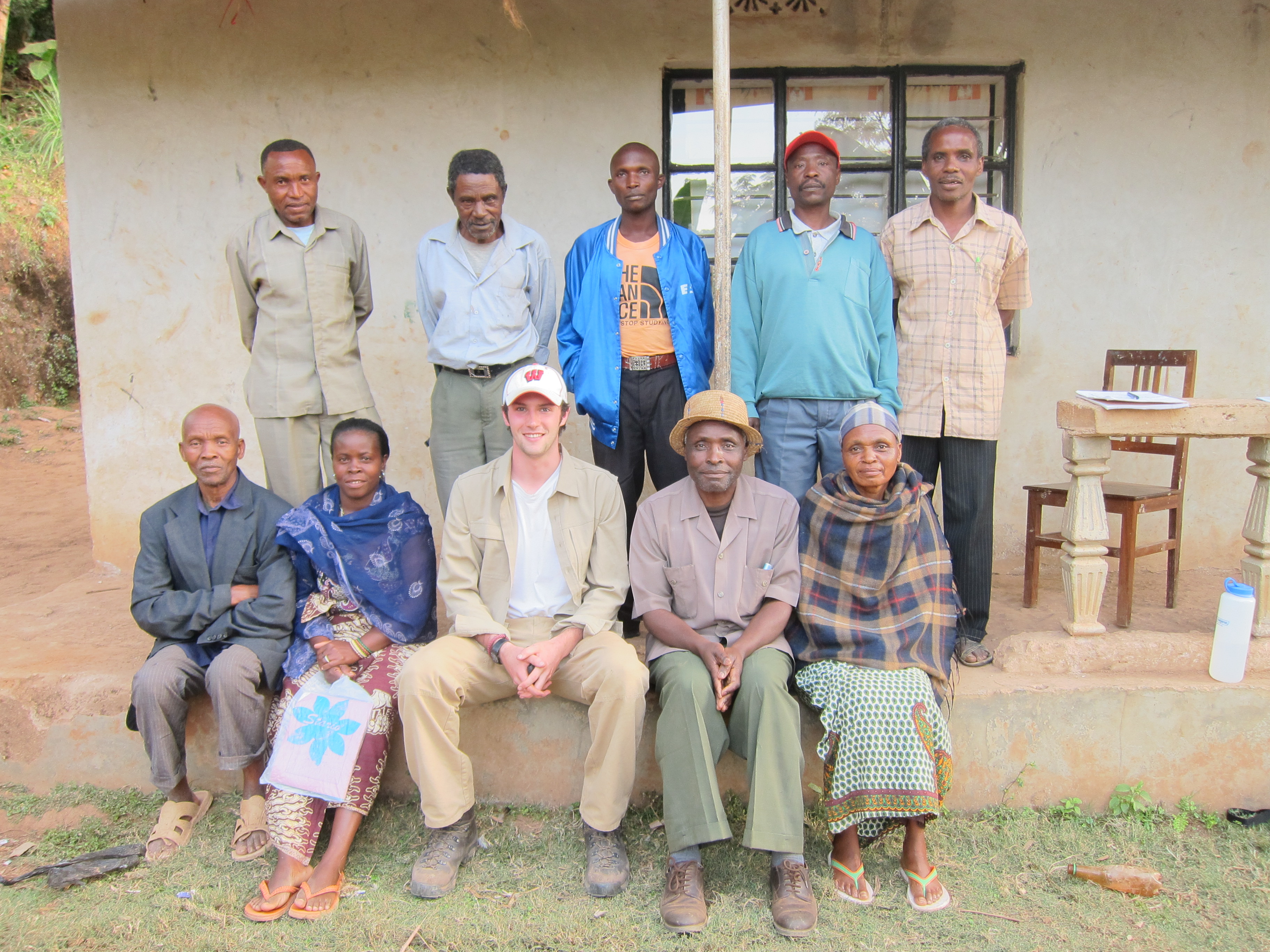
Economists explain that a fundamental problem in our world is that resources are finite, and this is especially true for developing countries that lack the most basic resources necessary for survival. According to the World Bank, more than 80 percent of poor Tanzanians live in rural areas and have limited access to arable land, water, food and tools. In his project funded by the Arthur Levitt Public Affairs Center, Eren Shultz '15 researched development in Tanzania to understand the current and future roles of cooperative organizations. With Professor of Economics Erol Balkan, Shultz is searching for a potential replicable, scalable and sustainable cooperative model that could reduce international poverty rates.
Shultz’s experiences while living in Tanzania in 2002 and 2008 inspired him to look at this specific country. He remembered the small-scale farms and hypothesized that the workers could escape their poverty-level existence by sharing their resources such as labor, capital and information to achieve profitability. Shultz became interested in the history of cooperatives and studied their current roles in African agriculture.
For his research, Shultz visited cooperative farms in Tanzania and assessed their productivity. He contacted rural farmers whom he found through World Wide Opportunities on Organic Farms and spent six weeks visiting farms in areas such as Moshi, Lushoto, Pangani and Tanga.
In total, he interviewed 82 farmers, visited 12 villages and observed eight cooperative organizations. Shultz worked on some of the villagers’ small farms at each location in exchange for the interviews and translations.
He learned about cooperatives’ extensive history in Tanzania and discovered that the concept can carry a negative connotation in many villages. When Julius Nyerere became Tanzania’s first prime minister in 1961, cooperatives were structurally imposed rather than naturally developed.
He forcibly relocated citizens and created villages that were supposed to function as cooperatives. However, the farming methods abused the land, and farmers produced cash crops rather than food necessary for subsistence. When Nyerere eventually resigned in 1985, Tanzania had become an extremely poor country, dependent on international aid.
One reason Shultz believes Nyerere’s system failed is because “he did not culturally contextualize the cooperative system for specific regions.” Nyerere’s universal cooperative system did not account for cultural subtleties and resulted in villagers rejecting the newly established ideals.
Shultz also studied a functioning and broad-reaching agricultural cooperative system, the Kilimanjaro Native Cooperative Union (KNCU) to witness how the concept can benefit individuals both within and outside of the agrarian sector. While this network is currently used for increasing agricultural efficiency, the organization can also help NGOs distribute medicines and technologies that can further benefit villagers.
Shultz strongly believes in empowering native villagers, saying, “we shouldn’t institute cooperatives -- we simply need to support the [farmers’]’ natural development for them to succeed.” He feels that Tanzanian farmers can escape poverty and achieve a greater level of well-being by lending their individual capital to one and through cooperative action.
Shultz found that small cooperatives, especially when composed of 60 to 80 villagers, are extremely efficient at producing crops. He did recognize, however, that there is no replicable, identical and scalable model for a cooperative union that can work in every location as evidenced by Neyerere’s failed attempt.
According to Shultz, “cooperatives must exhibit the ideals of its members and [tailor] these to successful aspects of previous co-ops,” supporting his idea that international groups must foster the slow development of these unions. He would enjoy studying economics and agricultural development further while potentially contributing to a cooperative effort in Africa after graduation.
Shultz is a graduate of Sauk Prairie High School (Wis.).
